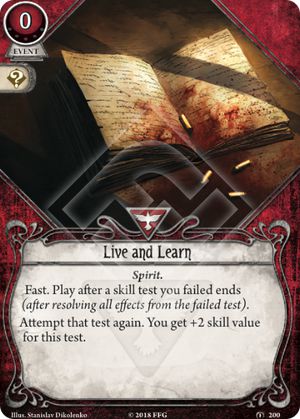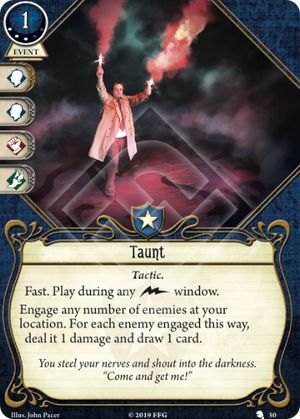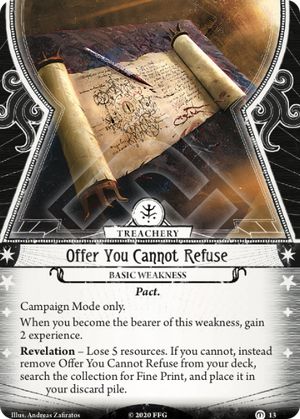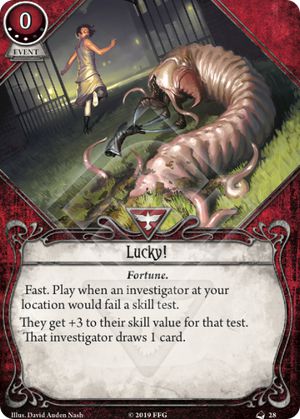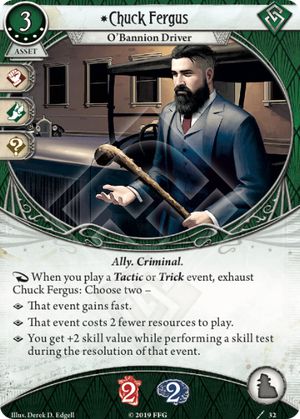
Can we talk about how insane this is?
If ol' Chuck here had been spoiled before the rest of Wini's deck, I probably would have said, "only Tactics and Tricks? Good, but not crazy." However, Wini's deck contains several extremely powerful trick events that you can play repeatedly if you succeed well enough.
Think playing events every turn would get expensive? Think you might not succeed by enough often enough? Chuck literally solves both those problems! And if you're swimming in cash, you can just make an event fast instead! Sure it's once per turn, but that's ridiculous!
How much would you pay for this? Well admittedly much of the price tag is in the xp cost, but the actual price tag is cheaper than Leo de Luca, and if you're playing a fast, free event every turn it's just as much action economy. Unlike Leo, Chuck is much easier to play late in the game, and the both have the same soak.
Event-heavy Rogues coughPrestoncoughSefina will get a ton of use out of Chuck, and could reasonably target him as a priority upgrade. Guardian Tony has access to many interesting tactics, including Clean Them Out and Counterpunch, which would greatly benefit from becoming fast and more accurate. Additionally, Chuck provides a Swift Reload for a mere 1 resource.
Even though he only works once per turn, I'm pretty sure this card is awesome. Can't wait to try it out.
